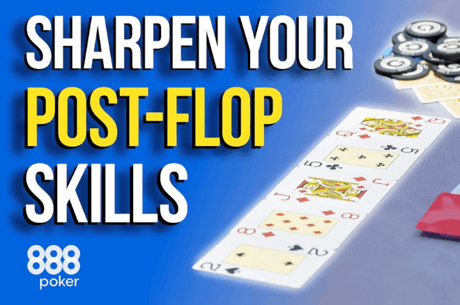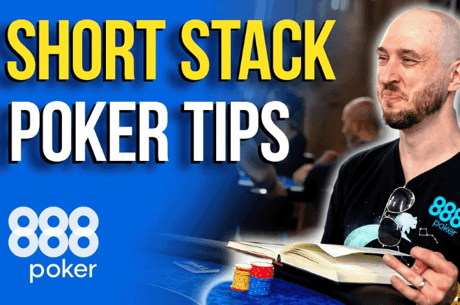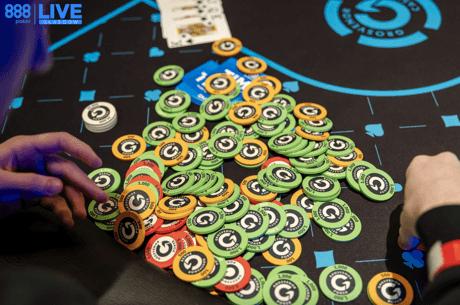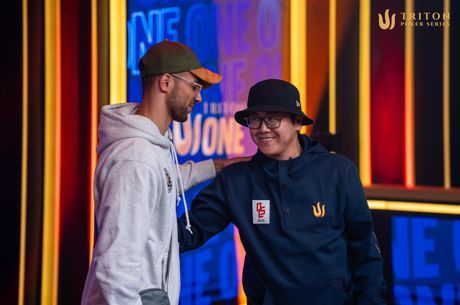To Defend Or Not to Defend? Facing a Preflop Raise from the Big Blind

“Big blind special.” That’s a term that you hear more often in cash games than in tournaments because of the high frequency of limped pots.
What does it mean? Well, the phrase is usually used to describe situations when the player in the big blind gets to see the flop for free — that is, no one has raised and he or she simply checks to see the first three community cards — then strikes gold despite being dealt a poor hand. For example, if you’re dealt 7♠4♣ in the big blind and the flop comes 6♠5♥3♦, that’s a “big blind special.”
However, it is also possible to enjoy “big blind specials” by calling preflop raises from the big blind, otherwise known as “defending” your big blind from being claimed by the preflop raiser.
Let’s explore some reasons why defending your big blind in tournaments can be sometimes be warranted — and profitable.
Why defend?
As mentioned, in tournaments there are fewer limped pots because there is a higher frequency of aggression, particularly from late position. But these days advanced players are now defending their big blind much more liberally when players raise — and, in turn, they are hitting more big blind specials.
The most obvious reason for defending your big blind more often in tournaments is to combat the aforementioned increase in late-position aggression. If your opponents are raising with a very wide range from the cutoff and button, then your calling range — even when out of position — should increase enough to exploit their mistakes.
If you call a raise and flop a middling pair against an aggressive player who has a very wide preflop range, then you may be in great shape to earn one or more streets of value by simply check-calling thereafter.
Why not reraise?
You may be asking yourself: “If our opponents are opening with a wide range, then why don’t we just reraise out of the big blind and take the pot down preflop?”
This is a fair question. If we are dealt poor holdings in the big blind and an aggressive player opens for a raise in late position, then reraising as a bluff is certainly an option. However, if we hold two Broadway cards or suited one-gappers like 9♠7♠ that have some semblance of value, then three-betting isn’t such a great option. We’re most likely just bloating the pot or allowing our opponent to four-bet us, forcing us to fold.
Getting a good price
When the antes kick in, then defending your big blind with a call will become even more valuable. For example, if the blinds are 2,000/4,000 with an ante of 500 at a nine-handed table, and a player on the button raises to 8,000, the pot becomes 18,500. If the player in the small blind folds, then you will only need to commit another 4,000 from the big blind for a chance to win 18,500. That’s great pot odds. In order to break even on this investment, you only need to win the hand 21.62% of the time (4,000/18,500).
To put that into perspective, according to the PokerNews Odds Calculator, the aforementioned 9♠7♠ has 21.25% equity preflop against pocket aces if neither of the aces are the A♠. That’s almost enough to make a profitable call preflop. And when there is a raise and a call, then you can peel even lighter.
To cite an example, earlier this year at the 2014 PokerStars Caribbean Adventure Main Event final table a hand arose involving Pascal Lefrancois, Isaac Baron, and Mike McDonald which illustrated a player recognizing he was getting a good price to defend from the big blind.
The blinds were 20,000/40,000 with an ante of 5,000. Baron raised to 90,000 from early position, then McDonald called in the cutoff and both the button and small blind folded.
At this point at the eight-handed final table, there was 280,000 in the pot. Lefrancois was in the big blind and only needed to call another 50,000 to see the flop, meaning he only needed to win the hand 17.86% of the time in order to break even (50,000/280,000).
Lefrancois opted to peel very lightly, making the call with Q♥8♦. Unfortunately for the French Canadian, Baron held a dominating queen (A♦Q♠), but even then Lefrancois still had 16% equity — still almost enough to make his call profitable. Lefrancois did make the call, and even though he ultimately didn’t win the hand, he was justified in doing so.
Don’t always be so defensive!
There are obvious caveats to this advice to consider defending your big blind more liberally.
First of all, the strategy is much more effective when you and your opponent(s) have relatively deep stacks. If the stacks are shallow (that is, less than 20 big blinds), then your implied odds are negatively affected because you can only extract a limited amount of chips from your opponent. Likewise, you will find yourself check-folding on the flop frequently after defending your big blind, which is something you shouldn’t be doing when your stack is getting shorter in a tournament.
Also, be on the lookout for adjustments from your opponents. If capable players notice that you are defending with a wider range, then they can combat that by shrinking their opening range. Poker is a game of adaptation, so don’t expect always to show a profit employing the same strategy.
The next time you’re in a tournament, you don’t have to wait for a limped pot in order to hit a big blind special. Sometimes, all it takes is a little defense.
Get all the latest PokerNews updates on your social media outlets. Follow us on Twitter and find us on both Facebook and Google+!









